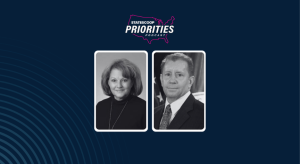California senator wants to protect student information

A California lawmaker planned to introduce legislation Thursday that would prohibit the makers of education software to use the personal information of students except for school purposes.
As it stands now, software companies are able to use students’ personal information for marketing and other for profit purposes because of a number of loopholes in current agreements.
“These companies are operating with zero restrictions, except for the ones that they themselves deem unilaterally appropriate,” said California State Sen. Darrell Steinberg, a Democrat from Sacramento who sponsored the bill. “That is unacceptable. Kids are in the classroom to learn and we value the security of their personal information above private profit.”
The law, called the Student Online Personal Information Protection Act or SOPIPA, would restrict what software makers can do with the personal information of students in public schools, ranging from kindergarten through the end of high school.
Many companies provide online services to aid classroom teaching, but they require students to create accounts that capture contact data and personal academic information such as grades, disciplinary history and chat records. In some instances, companies are mining data from schoolchildren beyond the needs of the classroom.
Parents who helped their students sign up noticed some companies were asking unnecessary questions, including how many rooms a student had in their home and how many parents they lived with. Some apps marketed to teachers and kids could track a child’s physical location.
In many cases, the only agreement about how a student’s personal information is processed is the privacy policy drafted by the online company.
Some of these privacy policies state they are “subject to change” unilaterally at any time.
Others include provisions, which affirmatively state the online company has no liability if they mishandle personal information.
Current federal and state law puts the onus only on schools and school districts to protect student personal information, not online companies. The type of personal information these companies may gather is broad and highly prized by online advertisers and marketers.
“We must get ahead of this problem before it’s too late” Steinberg said. “I intend to put safeguards around student personal information while allowing the industry to continue innovating.”
SOPIPA would prohibit the commercial use of student personal information for any secondary purposes including advertising, require online companies to properly encrypt student data, and require deletion of student personal information in certain instances.
The prekindergarten to 12th grade education software market in the United States reached $7.97 billion in the 2011-12 school year, compared with $7.5 billion two years earlier, according to estimates.
By aiming to regulate industry practices rather than school procedures, Steinberg’s bill is intended to prevent businesses from exploiting information such as students’ names, ages, locations, family financial situations, medical information or even their lunch preferences, said James Steyer, the chief executive of Common Sense Media, a children’s advocacy group based in San Francisco.
“The senator’s efforts will help to ensure that today’s powerful technology is used to advance teaching and learning without exposing children to marketing by companies outside of the education space,” Steyer said. “We are hopeful that the tech industry will stand with Sen. Steinberg and the concerned parents and educators who want to put in place simple, common sense safeguards to protect the personal information of California students.”






